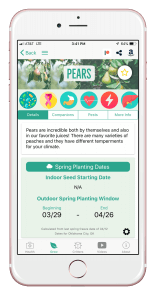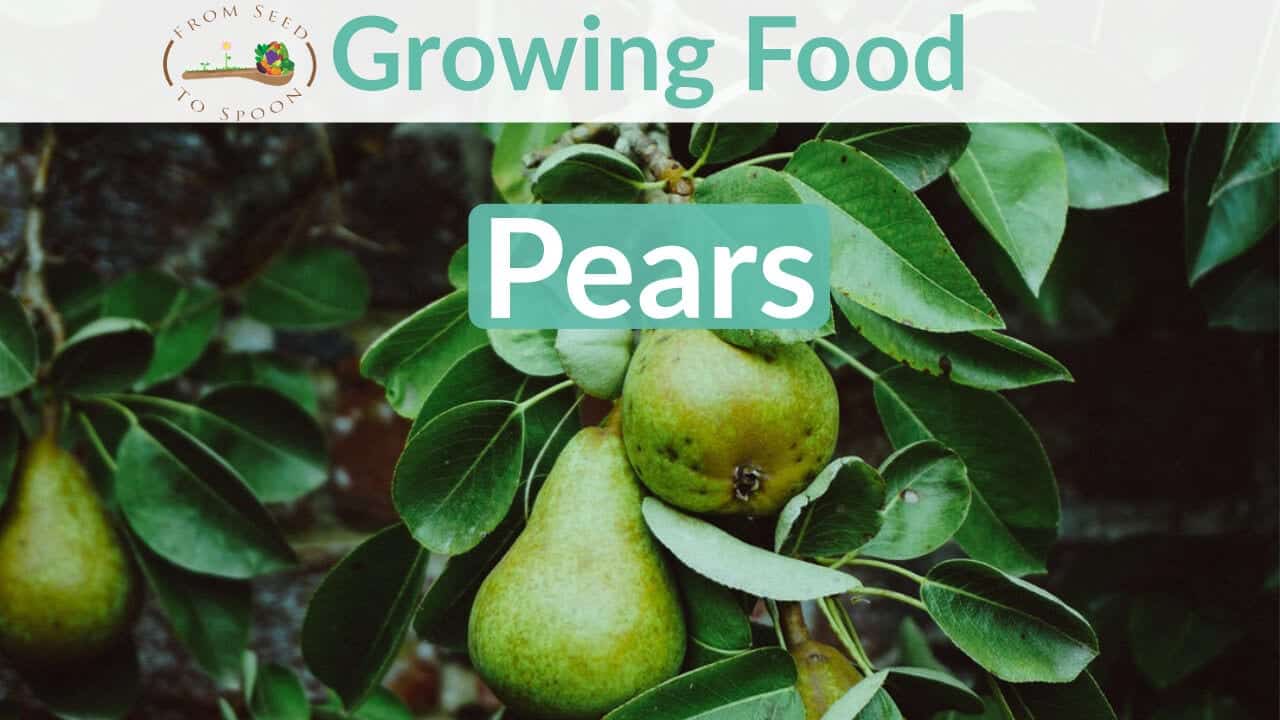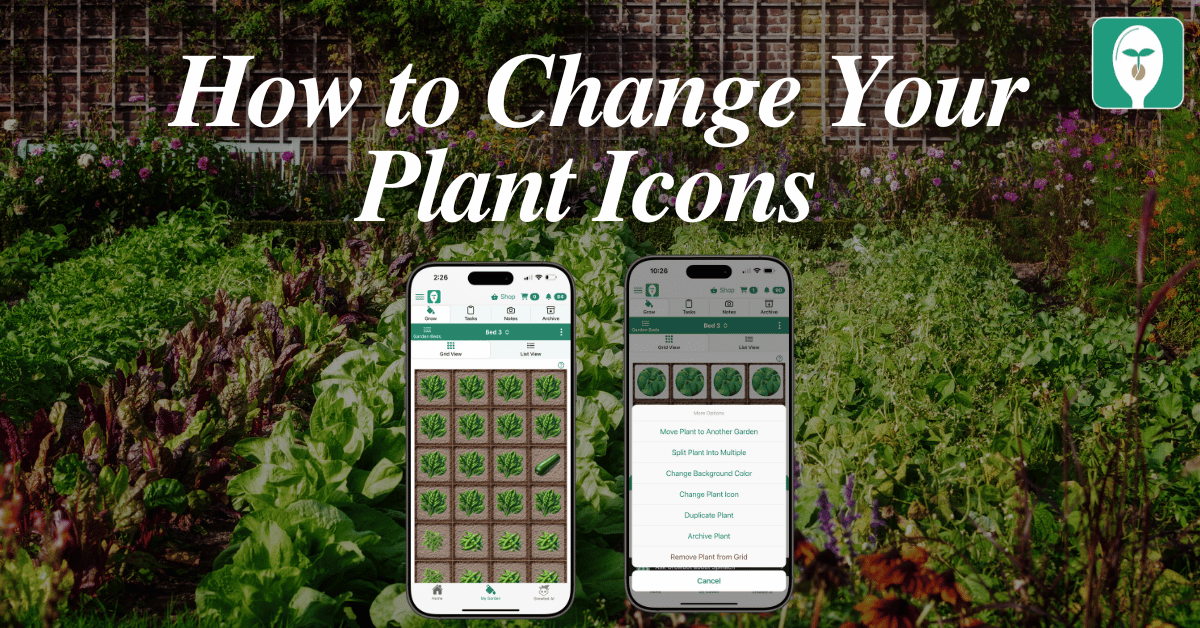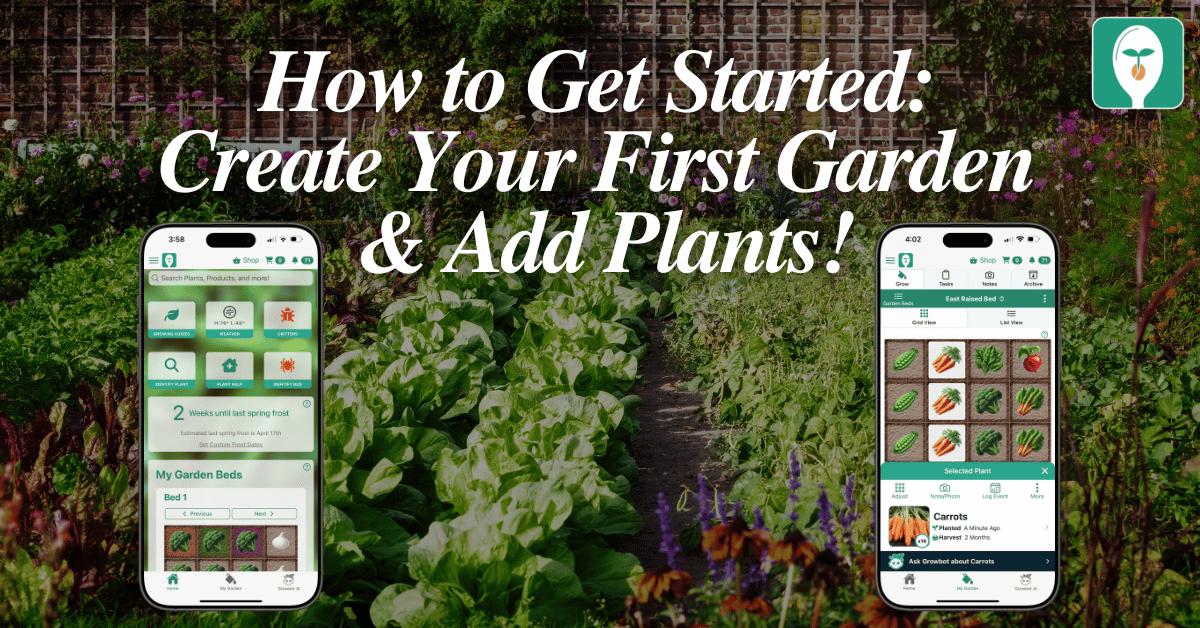How to Grow:
It is best to plant fruit trees after your last spring frost. You can also plant 8 weeks before your first fall frost. You can see specific dates for your location using our FREE iOS, Android, and Universal Web App. Dig a hole that is a few inches bigger than your pot the pear tree has come in. Pear trees like loose soil so if you need to, dig wider to loosen soil. Plant your pear trees apart by 15-20 feet in the full sun. Take care to notice what plants are around the area as well, see the companion plant section below. Water your pear tree regularly.
Companion Plants:
Companion planting is a vital part of organic gardening. Companion plants assist in the growth of others by attracting beneficial insects, repelling pests, or providing nutrients, shade, or support. There are also plants that do not like being next to each other. Some plants get too tall and can provide too much shade for your plant. Sometimes certain plants attract the same pests, so it is important to try and separate these. Herbs are especially great companion plants because they help to repel pests from your other plants!
| Good | Bad | |
| Basil | Marjoram | Potatoes |
| Carrots | Mint | Tomatoes (Bush and Vine) |
| Celery | Nasturtiums | Raspberries |
| Chamomile | Parsley | |
| Chives | Rosemary | |
| Cilantro/Coriander | Sage | |
| Dill | Stevia | |
| Garlic | Summer Savory | |
| Lavender | Sunflowers | |
| Lemongrass | Tarragon | |
| Marigolds | Thyme | |
See companion plants for 70+ foods in our FREE iOS, Android, and Universal Web app!
Pests:
Pests can be one of the most difficult challenges you face in the garden. We strive to grow food without the use of pesticide and luckily there are natural solutions for most of these nasty pests! The pests listed below are common pests for pears:
Learn more about how to manage pests and attract beneficial insects in our FREE iOS, Android, and Universal Web App!
Harvesting:
Pear trees will begin to produce pears within 3-5 years. You will know when pears are fully ripe by the color change from green to yellow. Ripe pears should come off the tree with only a slight twist and pull and still be hard.
Cooking & Eating!
Learn more about growing over 80+ different foods, including how to manage various pests in our FREE iOS, Android, or new Universal Web App!


Carrie Spoonemore, co-founder of “From Seed to Spoon,” stands as a beacon of inspiration for gardeners and health enthusiasts alike. Her journey alongside her husband, Dale Spoonemore, in creating a platform that demystifies gardening and promotes a healthier lifestyle, has made a significant impact on individuals around the globe. Through the “From Seed to Spoon” app, Carrie has dedicated herself to empowering people to take control of their health and environment by growing their own food.
With a profound belief in the power of gardening to improve mental and physical health, Carrie’s contributions to the Seed to Spoon blog reflect her holistic approach to wellness. Her articles often focus on the nutritional benefits of homegrown fruits and vegetables, organic gardening practices, and the mental health benefits of spending time in nature. Carrie’s expertise in health science shines through in her detailed discussions on how specific plants can contribute to a balanced diet and overall well-being.
Carrie’s passion for gardening is deeply intertwined with her commitment to family and community wellness. She frequently shares personal stories of how gardening has brought her family closer together, offering practical tips for involving children in gardening activities and making it a fun, educational experience. Her writing encourages families to explore gardening as a means of spending quality time together while learning about nature and sustainability.
In addition to gardening advice, Carrie’s contributions to the blog include insights into the use of technology to enhance the gardening experience. She has played a crucial role in designing the “From Seed to Spoon” app to be user-friendly, ensuring that users of all ages and backgrounds can navigate the complexities of gardening with ease. Her vision for the app is not just as a gardening tool but as a vehicle for change, inspiring individuals to adopt a more sustainable lifestyle by growing their own food.
Carrie Spoonemore’s presence on the blog is marked by her compassionate approach to teaching and her unwavering belief in the transformative power of gardening. Her work continues to inspire a community of gardeners to pursue a healthier, more sustainable way of living, proving that with the right tools and knowledge, anyone can become a gardener and advocate for their health and the planet.






